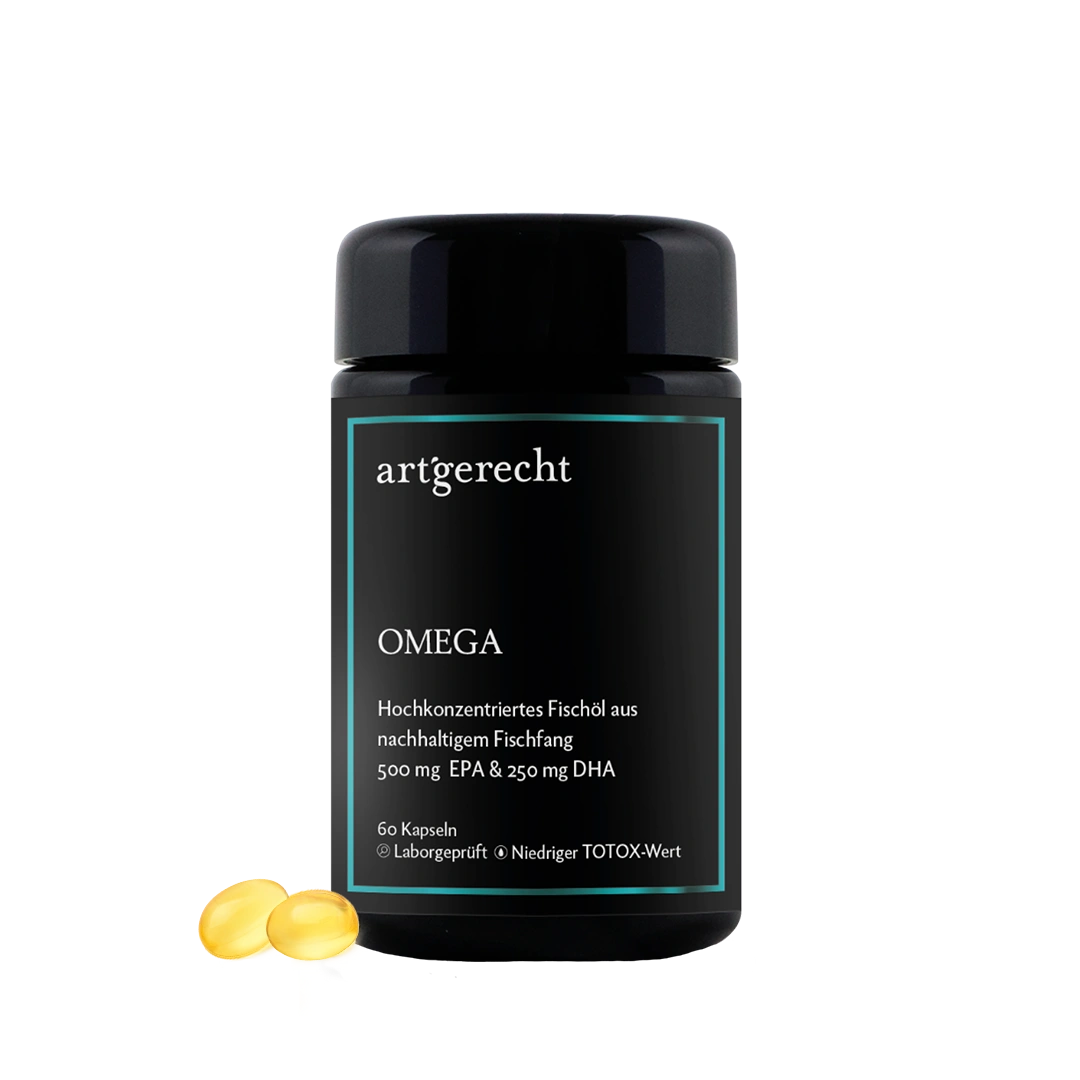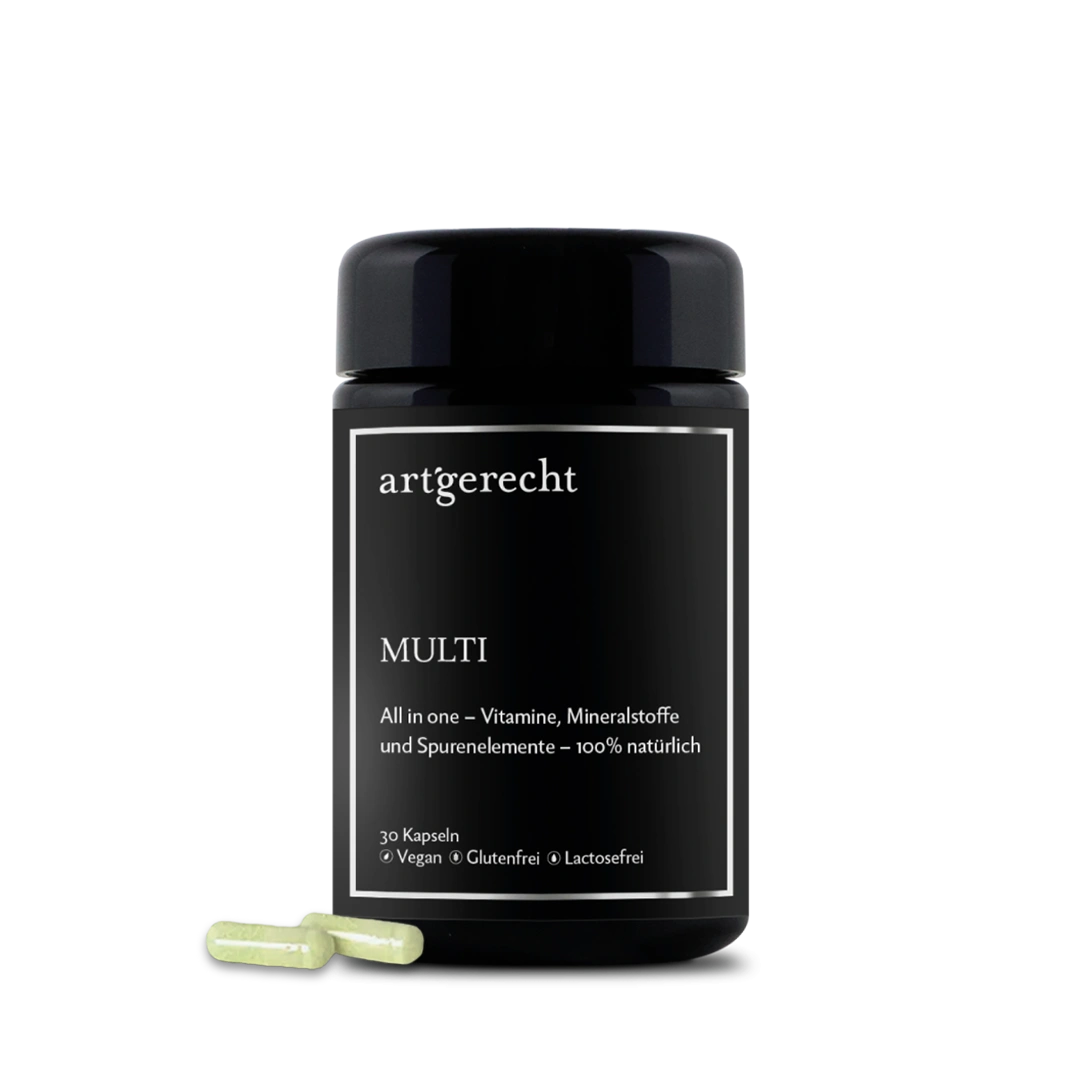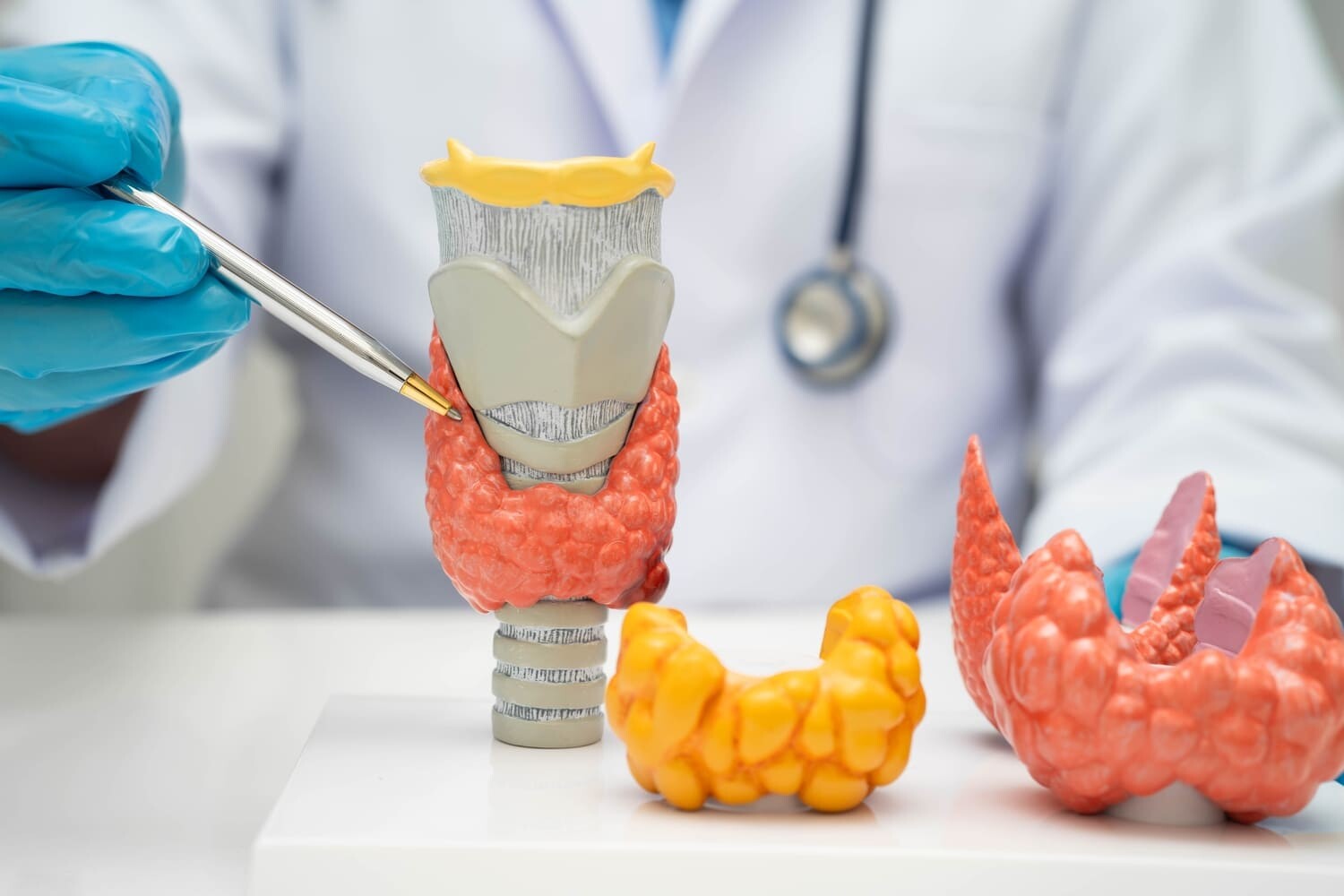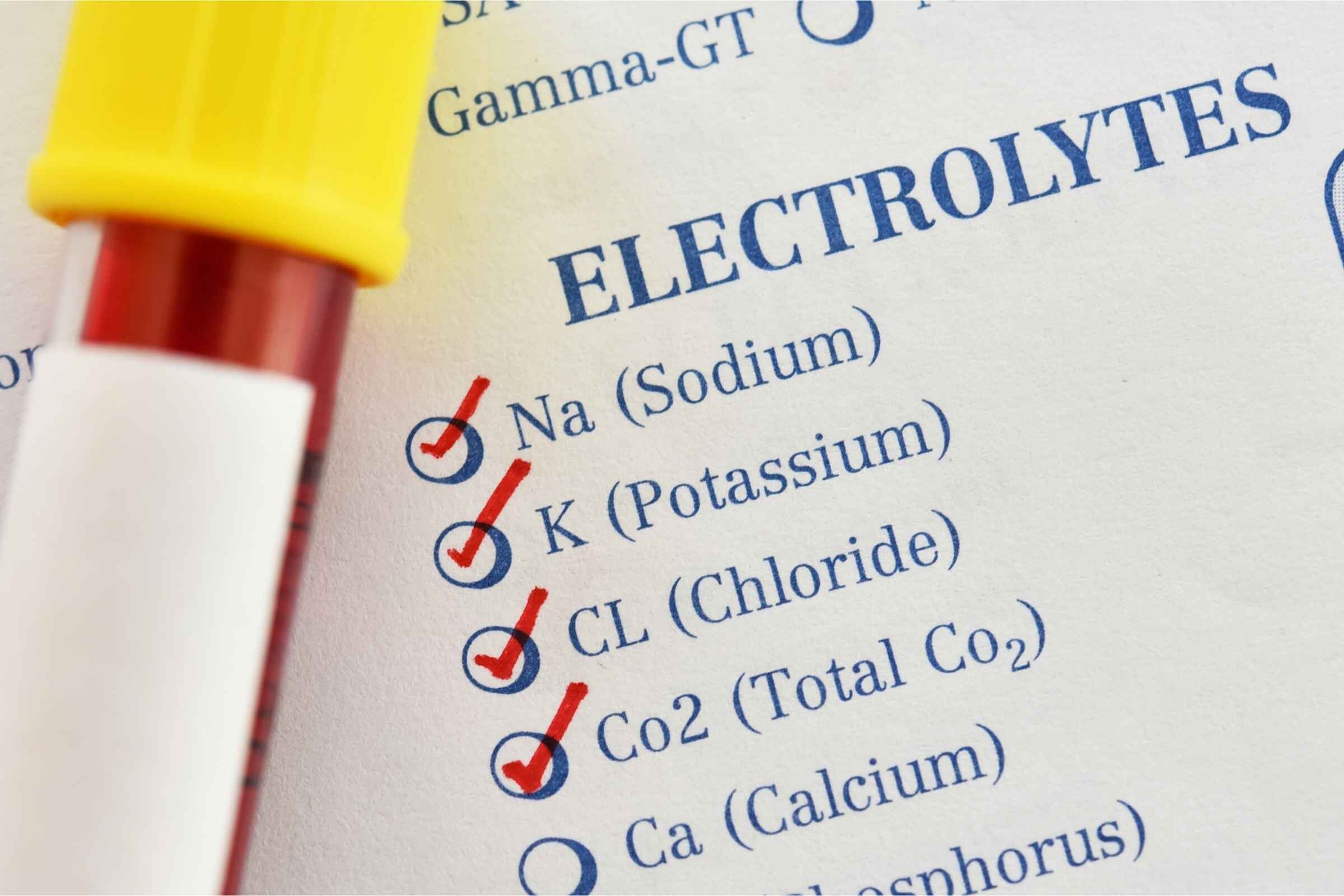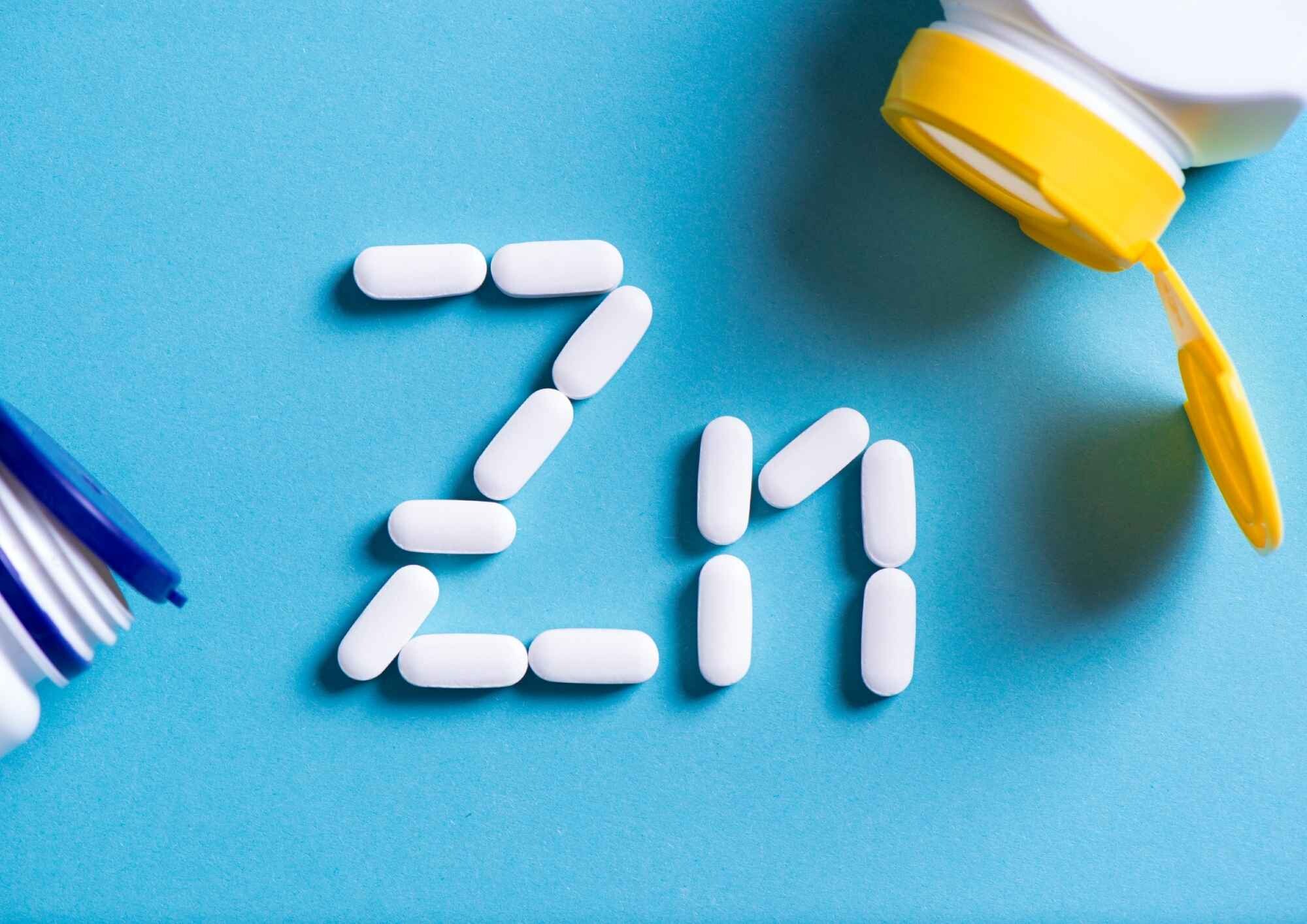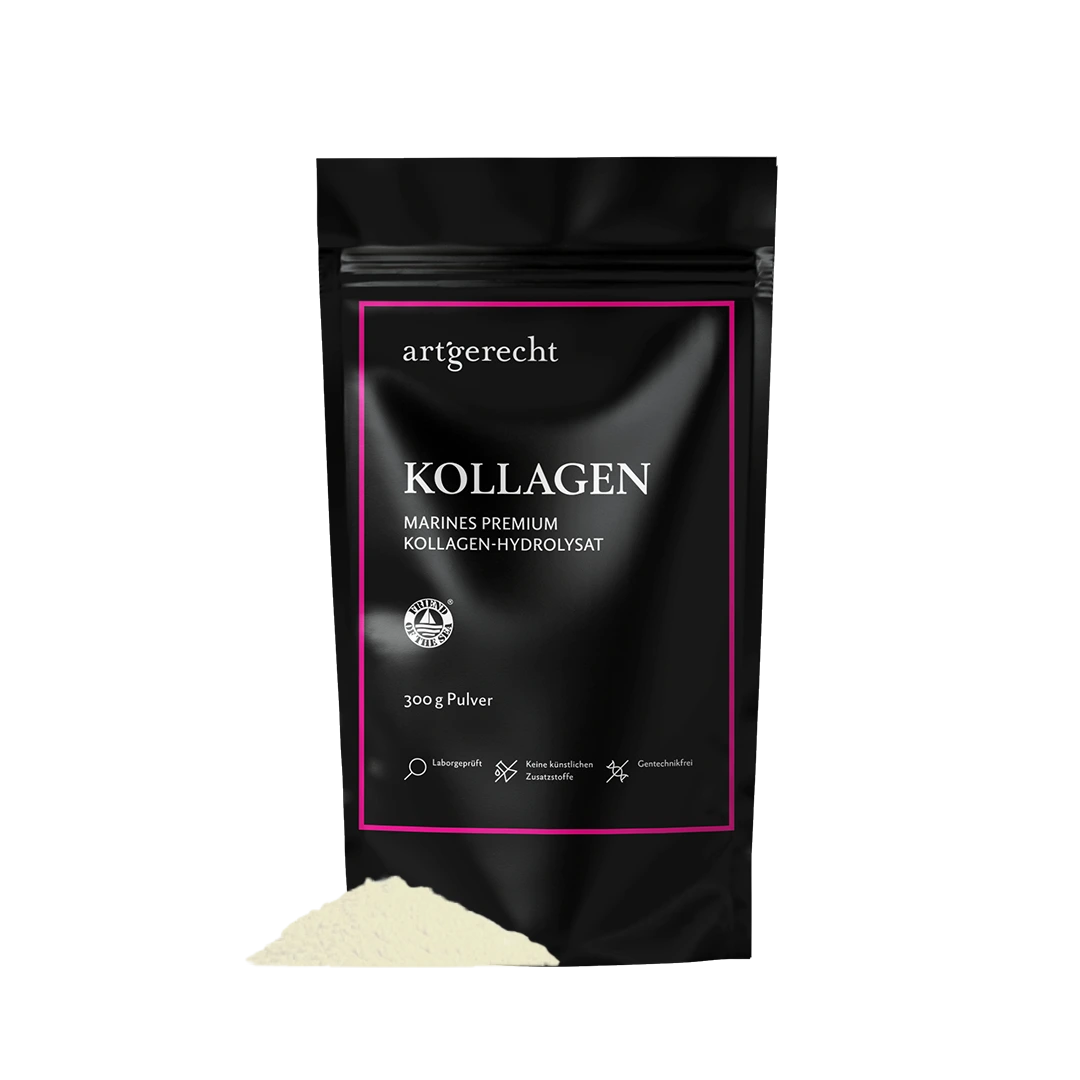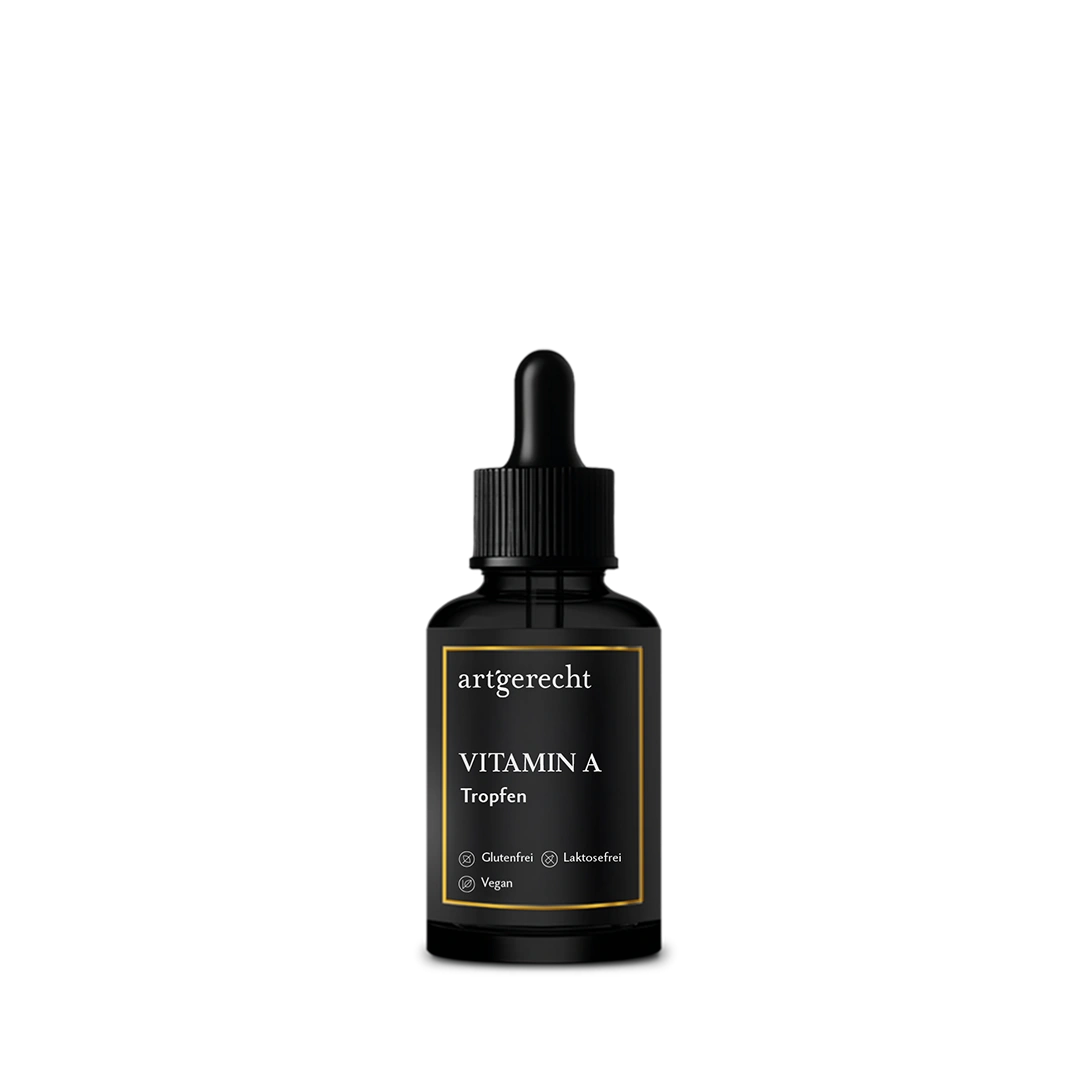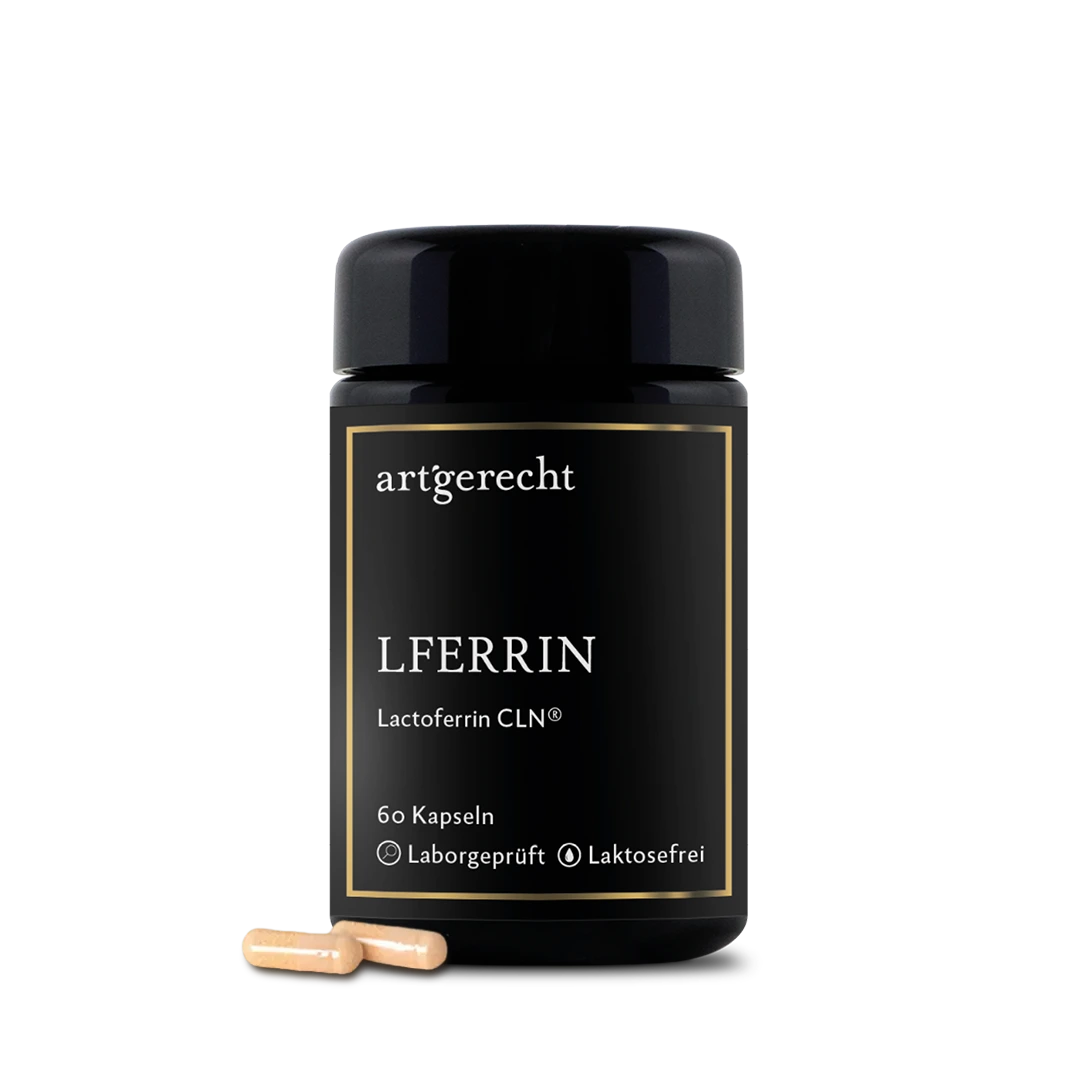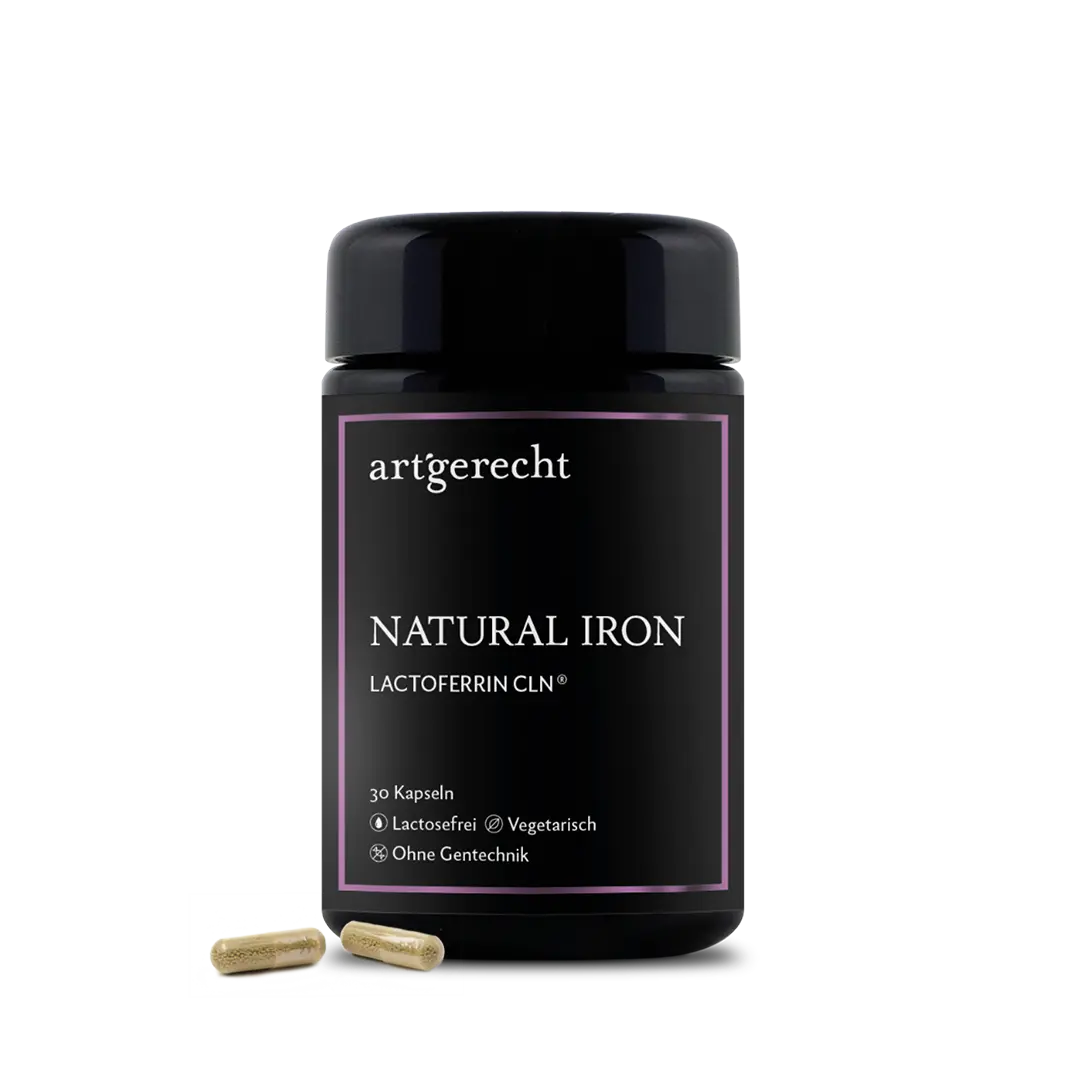- What is menopause actually?
- Menopause for men?
- The role of nutrition
- Stress management: Why relaxation is essential
- The menopausal microbiome and important nutrients
- The role of social integration
- Sexuality during the menopause
- Menopause and the working world: Why education is important
- Conclusion: Understanding the menopause as an opportunity
The menopause is a topic that affects half of humanity, but one that is still not talked about openly enough. In the PRO Edition of Health Nerds, Susanne Liedtke, entrepreneur, health consultant and founder of nobodytoldme.com, and the hosts discussed the myths, facts and best tips surrounding the menopause. Here we summarize the most important findings and show how women (and men) can actively and healthily shape this special phase of life.
What is menopause actually?
The menopause – medically referred to as climacteric – is a natural biological process in a woman's life that marks the end of the reproductive phase. Contrary to the widespread assumption that the menopause only begins with the cessation of menstruation (the so-called menopause), this transition starts much earlier - often from around mid-30s.
The hormonal change begins gradually: in the late reproductive phase, progesterone in particular, which is responsible for preparing the uterine lining, drops. This first hormonal change usually goes unnoticed. It is only in the following years that cyclical fluctuations in the estrogen level occur, which many women experience as noticeable symptoms such as premenstrual syndrome (PMS), mood swings or insomnia. [1]
On average, the menopause – defined as the last spontaneous menstruation – occurs around the 51st year of life . This is determined retrospectively after 12 months without menstruation. The menopause is divided into several phases:
- Late premenopause: First changes such as stronger PMS, mood swings, sleep problems.
- Frühe perimenopause: Cycle fluctuations of more than seven days.
- Late perimenopause: Longer breaks between periods (up to 60 days).
- Menopause: The last menstrual period in a woman's life.
- Postmenopause: The time after menopause.
Image source: Besins Healthcare - Menopause-understand.de (2023)
Menopause for men?
Men also experience hormonal changes – their testosterone levels gradually drop. Although this process is not as abrupt as in women, men also have to deal with issues such as loss of energy, muscle breakdown and cardiovascular risks. After the age of 40, testosterone levels fall by around 1–2 % every year. This process is known as „Late-Onset Hypogonadism“ and can lead to clinically relevant symptoms in some men. A testosterone deficiency in men can manifest itself through a variety of physical, psychological and sexual symptoms, including [2]:
- Diminishing libido and erectile dysfunction
- irritability and mood swings
- Concentration disorders, listlessness
- Sleep disturbances and exhaustion
- Decrease in muscle mass and muscle strength, Increase in abdominal fat
The role of nutrition
The western diet – characterized by too much sugar, simple carbohydrates and saturated fats – exacerbates menopausal symptoms. Susanne Liedtke recommends:
- vegetables as the main component of every meal.
- Reduce sugar and white flour(e.g. white rice, pasta, white bread).
- More vegetable foods such as mushrooms, legumes, nuts and seeds.
- pseudocerealssuch as quinoa and buckwheat instead of wheat products.
- Healthy protein sources (fish, egg, chicken instead of highly processed meat products).
- Two tablespoons of ground flaxseed are good for fiber and phytoöstrogens.
Revising your diet can have a positive effect on hormone balance, reduce inflammation and alleviate menopausal symptoms.
Stress management: Why relaxation is essential
Chronic stress is one of the most significant factors influencing hormonal balance – especially during menopause. The body reacts to prolonged stress by activating the hypothalamic-pituitary-adrenal axis (HPA axis), which leads to an increased release of the stress hormone cortisol. This condition has profound effects on other hormonal regulatory circuits, such as gonadotropin and steroid hormone production. [3]
A permanently increased cortisol level can particularly lower the level of progesterone, as both hormones are synthesized from the same precursor (pregnenolone) – an effect known as ""pregnenolone steal"".4] This shift can exacerbate classic menopausal symptoms such as insomnia, inner restlessness, irritability, hot flushes and cycle irregularities. At the same time, chronic stress promotes systemic low-grade inflammation, which is associated with an increased risk of cardiovascular disease, insulin resistance and depression. [5] Recommended measures:
- Yoga, Meditation and Mindfulness
- Gardening and Experiencing nature
- Regular, moderate exercise (especially strength training for bone health)
- Intermittent fastingto regulate insulin levels
The menopausal microbiome and important nutrients
The menopause also brings changes to the gut microbiome. A healthy microbiome not only supports digestion, but also hormone regulation. A diet rich in fiber, fermented foods and probiotics can help maintain balance. Depending on the individual situation, targeted supplementation can be useful:
- Omega-3 fatty acids (EPA/DHA) against inflammation
- Magnesium for muscle relaxation and stress reduction
- Selenium and Iodine for thyroid function
- B vitamins for energy metabolism and nerves
- Choline to support liver function
- Iron for heavy menstrual bleeding
The role of social integration
Isolation increases chronic stress and inflammation. During the menopause, a phase of life that is already characterized by hormonal changes, sleep problems, mood swings and physical changes, social support can be a decisive protective factor.Friendships, regular conversations and the feeling of being understood and connected promote the release of oxytocin – a hormone that not only strengthens bonding behavior, but has also been shown to reduce stress and have an anti-inflammatory effect. [8]
Walks with friends or joint activities in everyday life combine several health-promoting effects: physical exercise, social interaction and neurobiological reward through hormone release.
The connection between social integration and a lower ageing process is also increasingly being researched. A meta-analysis by Holt-Lunstad et al. (2015) shows that good social relationships are associated with a significantly lower mortality rate - an effect that is comparable to that of known risk factors such as smoking or obesity. [9]
Sexuality during the menopause
Sexual desire can decrease during the menopause. Mucous membranes dry out, which can cause pain. Susanne Liedtke recommends:
- Estriol creams or Ovula for local care
- DHEA (Intrarosa) to support the mucosa
- Testosterone therapy (short-term) for severe libido reduction
- Openness for new forms of intimacy
An orgasm has a relaxing and stress-reducing effect – important for physical and emotional well-being.
Menopause and the working world: Why education is important
In companies, the topic of menopause is often still a taboo. Yet in Germany alone, a lack of understanding results in 40 million lost working days and economic damage of 9.5 billion euros every year.According to the McKinsey Health Institute, closing the women's health gap could generate over one trillion dollars annually worldwide. Recommended measures for employers:
- Sensitize and train
- Provide company medical consultations
- Create more flexible working hours and support services
- Reduce taboos and spread knowledge about menopause
Conclusion: Understanding the menopause as an opportunity
The menopause is not a disease – it is a natural biological process. With sound knowledge, healthy nutrition, active stress management, exercise and
References
Höre jetzt die neue Episode
Unsere health nerds
Bei unseren Episoden immer dabei: Unser health nerd Matthias. Wir möchten Dir ihn kurz vorstellen.

Matthias Baum
Head of Science & Clinical Research. Gesundheitswissenschaftler, Therapeut für klinische Psychoneuroimmunologie, Heilpraktiker, Physiotherapeut, Trainer, Clinical Research Associate.
„Seit mehr als zwölf Jahren bin ich im medizinischen und therapeutischen Umfeld diverser Bereiche tätig: Von Notfallmedizin über Therapie in Kliniken und Praxen, inklusive Prävention und Gesundheitsförderung, bis hin zu Tätigkeiten als Dozent im Gesundheitswesen. Das gibt mir heute einen breiten Blick auf alle notwendigen Ebenen in der Betreuung, Beratung und Behandlung von Patienten für individuelle Gesundheit, Wohlbefinden und einen artgerechten Lebensstil.“


